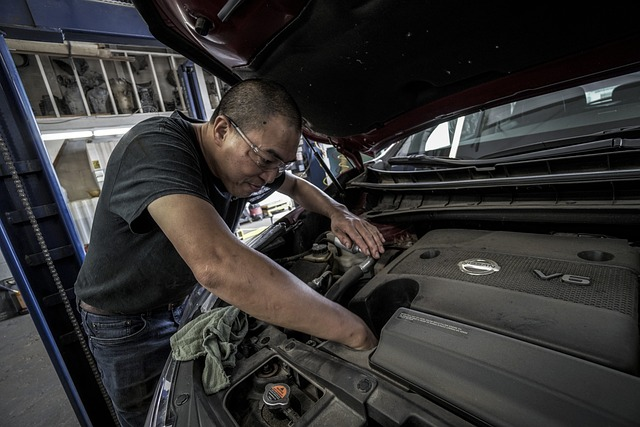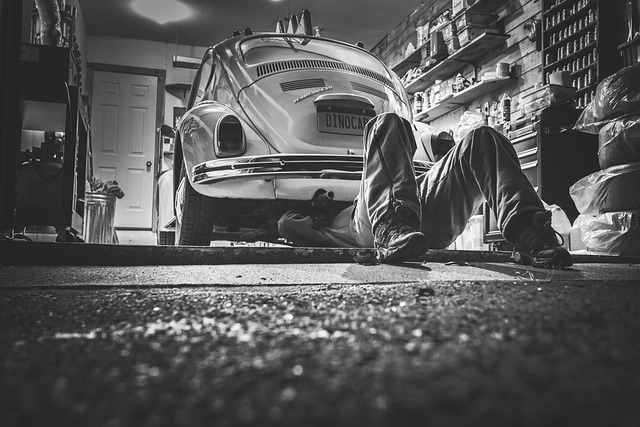Auto Repair Lawyers: What to Do When Faced with Faulty Auto Repairs

As a car owner, you rely on your vehicle to get you where you need to go safely and efficiently. When your car needs repairs, you trust that the mechanic or auto repair shop will do the job right. However, what happens when you find yourself dealing with faulty auto repairs?
In this article, we’ll explore the legal issues surrounding inadequate repair work and discuss what steps you can take to protect your rights and seek financial recovery.
Common Examples of Faulty Auto Repairs

Faulty auto repairs can take many forms, ranging from minor issues to serious safety hazards. Some common examples include:
- Failure to diagnose and fix the original problem
- Using damaged or defective parts
- Improper installation of components
- Incomplete or shoddy workmanship
- Charging for unnecessary repairs or upgrades
When a mechanic fails to repair your vehicle to a reasonable standard, it can lead to further damage, additional expenses, and even accidents or injuries.
The Legal Implications of Faulty Auto Repairs

Under the law, auto repair shops and mechanics must perform repairs competently and in a manner that meets industry standards. When they fail to do so, they may be held liable for any resulting damages or injuries.
In most cases, faulty auto repairs fall under the category of negligence. To prove negligence, you must show that:
- The repair shop or mechanic owed you a duty of care
- They breached that duty by performing substandard work
- You suffered damages or injuries as a result of their breach
- Their actions directly caused your damages or injuries
If you can establish these elements, you may be entitled to compensation for your losses, including additional repairs, towing expenses, rental car fees, lost wages, and other related expenses.
Steps to Take When Dealing with Faulty Auto Repairs

If you suspect your vehicle has been subjected to faulty repairs, acting quickly to protect your rights is essential. Here are some steps you can take:
Document everything: Keep detailed records of all interactions with the repair shop, including dates, names, and the specific work performed. Take photos of any visible issues or damage.
Get a second opinion: If possible, have your vehicle inspected by another trusted mechanic to assess the quality of the repairs and identify any remaining issues.
Notify the repair shop: Contact the repair shop in writing (email or certified letter) to inform them of the problem and request that they rectify the situation. Set a reasonable deadline for their response.
File a complaint: If the repair shop fails to satisfactorily address your concerns, consider filing a complaint with your state’s consumer protection agency or the Better Business Bureau.
Consider legal action: Depending on the severity of the situation and the amount of damages involved, you may need to consult an experienced auto repair lawyer to discuss your legal options.
The Role of an Auto Repair Lawyer

An auto repair lawyer specializes in cases involving faulty or negligent repairs. They can help you navigate the legal process and fight for your deserved compensation. Some key ways an attorney can assist you include:
Evaluating your case:
A lawyer can review the details of your situation and advise you on the strength of your claim and the potential for financial recovery.
Gathering evidence:
An experienced attorney can collect and preserve evidence, including expert witness testimony and industry-standard documentation, to support your case.
Negotiating with the repair shop or insurance company:
Your lawyer can handle communications and negotiations to seek a fair settlement.
Representing you in court:
If necessary, an auto repair lawyer can file a lawsuit and represent you in court to fight for your rights and seek maximum compensation.
When choosing an auto repair lawyer, look for someone with experience handling cases similar to yours and a track record of success.
Many attorneys offer free initial consultations, allowing you to discuss your case and understand your legal options without upfront costs.
Preventing Faulty Auto Repairs

While no prevention method is foolproof, there are steps you can take to minimize your risk of falling victim to faulty auto repairs:
Choose a reputable repair shop: Do your research and select a repair shop with positive reviews, certified mechanics, and a history of satisfied customers.
Get everything in writing: Before authorizing any repairs, ensure you receive a detailed estimate, including the specific work to be performed and the cost of parts and labor.
Ask questions: Don’t be afraid to ask the mechanic to explain the repairs and why they are necessary. Trust your instincts and seek a second opinion if something doesn’t seem right.
Keep up with routine maintenance: Regular oil changes, tire rotations, and other preventive maintenance can help identify potential issues early and reduce the need for significant repairs.
Conclusion

Dealing with faulty auto repairs can be a stressful and frustrating experience, but it’s essential to remember that you have rights as a consumer. By documenting the situation, seeking a second opinion, and consulting with an experienced auto repair lawyer, you can take steps to protect yourself and seek the compensation you deserve.
If you are in a dispute with a repair shop or mechanic, don’t hesitate to seek legal help. An attorney can provide valuable guidance and advocacy to help you navigate the legal process and fight for a fair resolution.
Remember, your vehicle is a significant investment and an essential part of your daily life. Taking a proactive approach to auto repairs and knowing your rights can help ensure your car remains safe, reliable, and on the road for years.
- Hale v. Morgan (1978) 22 Cal.3d 388: In this case, the California Supreme Court held that a landlord’s actions in cutting off a tenant’s utilities for failure to pay rent, which resulted in the tenant suffering a heart attack, could support a claim for intentional infliction of emotional distress.
- Kwan v. Mercedes-Benz of North America, Inc. (1994) 23 Cal. App.4th 174: The plaintiff, Kwan, sued Mercedes-Benz for breach of warranty after experiencing repeated problems with his vehicle’s engine. The court held that the plaintiff’s express warranty had expired and that the implied warranty of merchantability did not cover the defects.
- Donlen v. Ford Motor Co. (2013) 217 Cal.App.4th 138: In this case, the plaintiff, Donlen, filed a lemon law claim against Ford Motor Company for a defective vehicle. The court held that the plaintiff was entitled to reimbursement for the purchase price of the vehicle minus the value of the use of the car before the defect was discovered.
- Gavaldon v. DaimlerChrysler Corp. (2004) 32 Cal.4th 1246: The California Supreme Court held that a plaintiff may recover punitive damages in a breach of warranty action under the Song-Beverly Consumer Warranty Act (California’s lemon law) if the defendant’s conduct was willful, intentional, or malicious.
- Belgarde v. Burtch Motors, Inc. (1995) 34 Cal.App.4th 1201: The court held that a used car dealer’s failure to disclose known defects in a vehicle, as required by the “As Is” disclosure law (California Vehicle Code section 11713.17), constituted fraud and supported a claim for rescission of the contract.
- Jensen v. BMW of North America, Inc. (1995) 35 Cal.App.4th 112: In this case, the plaintiff, Jensen, sued BMW for breach of express and implied warranties after experiencing repeated problems with his vehicle’s paint job. The court held that the statute of limitations barred the plaintiff’s claims.
- Jiagbogu v. Mercedes-Benz USA (2004) 118 Cal.App.4th 1235: The court held that the statute of limitations did not bar a plaintiff’s lemon law claim because the limitations period began to run when the manufacturer failed to repair the vehicle after reasonable attempts, not when the car was first brought in for repair.
- Mocek v. Alfa Leisure, Inc. (2003) 114 Cal.App.4th 402: In this case, the plaintiff, Mocek, sued a motorhome manufacturer for breach of warranty after experiencing repeated problems with the vehicle’s brakes and electrical system. The court held that the statute of limitations did not bar the plaintiff’s claims because the limitations period began to run when the manufacturer failed to repair the vehicle after a reasonable number of attempts.
- Robertson v. Fleetwood Travel Trailers of California, Inc. (2006) 144 Cal.App.4th 785: The court held that a plaintiff’s breach of warranty claim under the Song-Beverly Consumer Warranty Act was not subject to an arbitration agreement because the agreement was unconscionable and unenforceable.
- Krotin v. Porsche Cars North America, Inc. (1995) 38 Cal.App.4th 294: In this case, the plaintiff, Krotin, sued Porsche for breach of express and implied warranties after experiencing repeated problems with his vehicle’s engine. The court held that the statute of limitations barred the plaintiff’s claims and that the plaintiff had failed to prove that the alleged defects substantially impaired the vehicle’s use, value, or safety.
Faulty Auto Repairs
- Definition: Substandard or incomplete repairs performed by a mechanic or auto repair shop that fail to fix the original problem or cause additional issues.
- Example: A mechanic fails to diagnose and repair a car’s faulty brakes properly, which can lead to decreased stopping power and a potential accident.
Negligence
- Definition: The failure to exercise reasonable care, resulting in harm or damage to another party.
- Example: An auto repair shop uses defective parts when repairing a customer’s vehicle, causing the car to break down and leaving the customer stranded.
Personal Injury
- Definition: Physical, emotional, or psychological harm an individual suffers due to another party’s negligence or intentional actions.
- Example: A faulty repair causes a car accident, resulting in the driver sustaining serious injuries that require medical treatment and time off work.
Gather Evidence
- Definition: Collecting and preserving information, documents, or physical items supporting a legal claim.
- Example: A car owner takes photos of the faulty repairs, saves all receipts and invoices, and gets a second opinion from another mechanic to demonstrate the inadequacy of the original maintenance.
Automotive Repair
- Definition: The process of diagnosing, maintaining, and fixing issues with vehicles to ensure they operate safely and efficiently.
- Example: A car owner takes their vehicle to an auto repair shop for a routine oil change and tire rotation to keep the car in good working order.
Mechanic
- Definition: A skilled professional trained to diagnose and repair various types of vehicles, including cars, trucks, and motorcycles.
- Example: An auto repair shop hires a certified mechanic with years of experience to handle complex engine repairs and transmission replacements.
Repair Shop
- Definition: A business establishment specializing in repairing and maintaining customer vehicles.
- Example: A local auto repair shop offers a wide range of services, including oil changes, brake repairs, and electrical diagnostics, to help keep customers’ cars running smoothly.
Defective
- Definition: A product or part that fails to meet quality standards, is damaged, or does not function as intended.
- Example: A mechanic uses a defective alternator when repairing a customer’s car, causing the battery to fail and stall repeatedly.
Related Terms: Mechanic or repair shop, automotive repair, car repair shops, car repairs, faulty repair, automotive repairs, car accident, personal injury lawyer, automobile accident, repaired properly, tow truck













